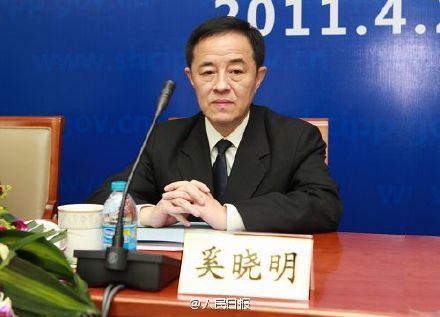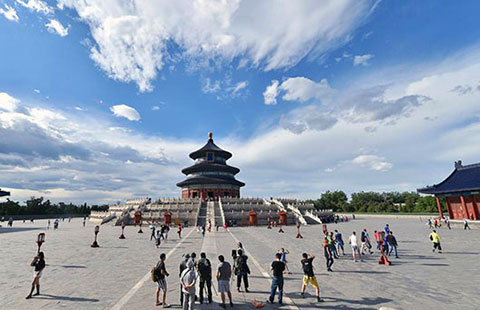Top court official under inquiry for graft
By Cao Yin (China Daily) Updated: 2015-07-13 06:28
|
 |
|
File photo of Xi Xiaoming. |
A senior Supreme People's Court judge has been placed under investigation on suspicion of disciplinary and law violations, the top disciplinary watchdog reported on Sunday.
Xi Xiaoming, vice-president of the court, is being investigated for alleged severe breaches of law and Party discipline, according to a statement released by the Central Commission for Discipline Inspection of the Communist Party of China. The accusations are common commission terms for graft.
The top disciplinary authority did not disclose further details about the case.
The 61-year-old judge is the first official of the country's top two justice authorities-the top court and the Supreme People's Procuratorate-to be investigated since the 18th Central Committee of the Communist Party of China was elected in 2012.
A report by guancha.cn accused him of involvement in the criminal case of Zhang Xinming, the former richest man of coal-affluent Shanxi province. The accusation has not been confirmed by the top anti-graft watchdog.
Xi, who has worked for the top court for 33 years, is a senior ministerial-level official. He was appointed vice-president of the top court in 2004.
He made news in October when he heard Qihoo 360's claim that rival Tencent Inc had violated the country's anti-monopoly law. The Supreme People's Court upheld a lower court's ruling that Tencent had not violated the law.
On May 12, the top court established a research group to make civil law and named Xi as its head.
On May 19, he was appointed a director of the court's environmental judicial research center.
Xi, a native of Changzhou, Jiangsu province, was once a police officer in Heping district of Shenyang, capital of Liaoning province. He graduated from Jilin University's law school in 1982, and came to the top court as a clerk.
Three years later, he was assigned to the court's research office. In the following eight years, he earned a master's degree in civil law at Peking University and studied in London for a year.
He always focused on economic law, and he became the deputy chief judge of the court's economic tribunal in 1993.
He worked on his economic law doctorate at Peking University from 1998 to 2002, while serving as chief judge of the top court's civil department.
He was also deputy secretary of the politics and law committee in Shanghai in 2003 and 2004.
- Delegation salutes Tibet anniversary
- Officials are told to act as anti-graft watchdogs
- Great Wall safeguarded in united action
- Vice minister pledges more efforts to improve air quality
- Beijing’s efforts to control air pollution start to pay off
- China's military committed to reform
- Netizens rip singer over baby photos
- Central govt's growing support for Tibet
- Monument to be built on Tianjin blast site
- China and Russia seal raft of energy deals







